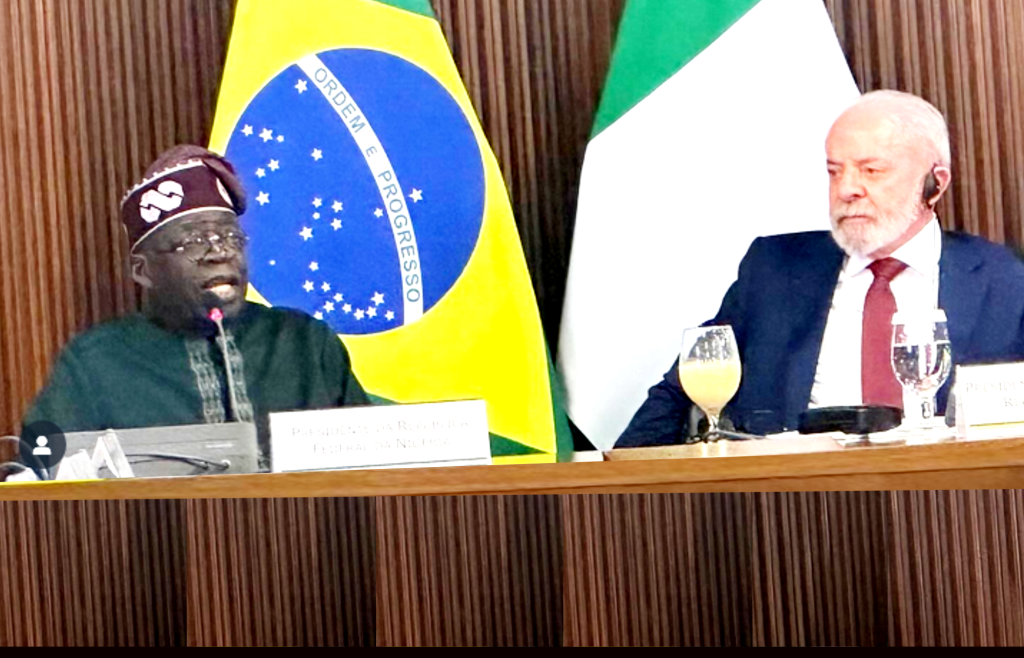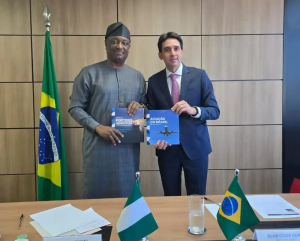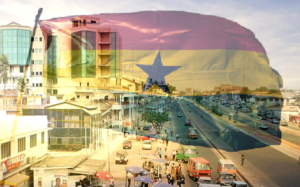Nigeria signed the BASA with Brazil, Unlocking the South Atlantic and Redefining Trade and Ties

Nigeria has signed a Bilateral Air Services Agreement (BASA) with Brazil, paving the way for designated airlines from both countries to operate direct commercial flights. The agreement covers passenger and cargo services, creating new opportunities for trade, tourism, and cultural exchange.

When Nigeria and Brazil signed a Bilateral Air Services Agreement (BASA) in Brasília, it was more than an aviation deal. It was a declaration of intent to bridge centuries-old ties with modern economic diplomacy, to strengthen South-South cooperation, and to harness the power of Diaspora capital for trade, investment, and cultural exchange.
For Nigeria, this agreement represents not just direct flights between Lagos and São Paulo or Rio de Janeiro, but a strategic bid to position itself as Africa’s trans-Atlantic hub. For Brazil, it offers an expanded gateway into West Africa and the wider continent. For both, it marks a step toward redefining global partnerships beyond traditional North-South corridors.
The Nigeria-Brazil story is deeply historical. During the transatlantic slave trade, millions of Africans who were taken into slavery, were mostly from the Yoruba-speaking regions of present-day Nigeria. These enslaved people were taken to Brazil. Centuries later, echoes of that forced migration remain in the Yoruba quarters of Bahia, the rhythms of Capoeira and the spirituality of Candomblé.
Yet, despite these rich cultural ties, trade and economic relations between the two countries have long fallen short of their potential. Logistical bottlenecks, particularly the absence of direct air links, limited growth. The new BASA is designed to change that, transforming symbolic ties into tangible economic flows.
At its core, BASA is a bilateral pact that sets out how airlines from both countries can operate passenger and cargo services between their territories. The Nigeria-Brazil deal promises:
- Direct Connectivity: Airlines can now launch direct routes for both people and goods.
- Trade Opportunities: Reduced logistics costs should boost agriculture, oilfield services, pharmaceuticals, and manufactured exports.
- Tourism and Culture: Nigeria’s Yoruba-Brazilian heritage corridor could become a focal point for heritage tourism.
- Technical Cooperation: Both nations have opportunities to collaborate on aviation safety, training, and regulatory standards.
But beyond aviation jargon, BASA is about power, partnerships, and prosperity.
Diaspora Capital as a Catalyst: Brazil is home to one of the largest clusters of Yoruba descendants outside Africa. Direct flights mean the Nigerian Diaspora in Brazil can now engage more easily with the homeland, investing in infrastructure, real estate and MSME/SME businesses. Diaspora bonds, a flagship initiative of Nigeria’s financial diplomacy, could also find fertile ground among Afro-Brazilian investors.
Boosting Non-Oil Exports: Nigeria’s diversification agenda gains a new outlet. With a population of over 214 million and proximity to Mercosul markets, Brazil offers fertile ground for Nigerian exports like sesame, hibiscus, cashew, palm derivatives, etc., Beyond commodities, Nollywood films, Afrobeats, the creatives and Nigerian fashion could ride this new cultural wave into South America.
Strengthening Global South Diplomacy: This pact reinforces Nigeria’s role in South-South cooperation. By building closer ties with Brazil, a member of the new world-power bloc – BRICS, Nigeria enhances its leverage in global governance debates and positions Lagos as a hub for trans-Atlantic traffic.

Still, BASA is no magic wand. Several challenges could blunt its promise:
- Infrastructure Gaps: Nigeria’s airports must meet world-class standards to compete.
- Airline Fragility: With Nigeria’s carriers struggling financially, competing with established Brazilian airlines may prove difficult.
- Regulatory Misalignment: Disparities in safety protocols, customs clearance, and cargo security could stall progress.
- Implementation Fatigue: Nigeria has a history of signing big-ticket agreements that gather dust. From gas pipelines to aviation accords, execution has often been the weak link.
Experts suggest Nigeria must act quickly to turn promise into reality:
- Set Up a Nigeria-Brazil Aviation & Trade Taskforce: A joint body led by the Ministries of Aviation and Trade should craft a 5-year roadmap linking aviation policy to Diaspora and export strategies.
- Empower the Diaspora: Nigeria’s Afro-Brazilian community should be engaged through business forums, cultural festivals, and investment platforms. As Mr. Chika Ori, President of Nigerians in Diaspora Organisation (NIDO) Americas, Brazil, puts it: “Without deliberate Diaspora integration, the Nigeria–Brazil air pact risks flying half-empty.”
- Invest in a Cargo Hub at Lagos Airport: Building a dedicated perishable goods terminal at Murtala Mohammed International Airport (MMIA) could unlock Nigeria’s fresh produce exports to Brazil and South America.
- Enhance Aviation Skills and Safety; Partnerships with Brazilian training institutions could upgrade Nigeria’s aviation workforce, from pilots to engineers and air traffic controllers.
At its best, the Nigeria-Brazil BASA is about much more than planes. It is about reimagining centuries-old cultural bonds as modern trade corridors. It is about harnessing Diaspora capital to fuel economic diversification. It is about strengthening alliances within the Global South in an era of shifting geopolitics.
As a test to Nigeria, will this BASA deal join the list of unfulfilled promises, or will it redefine Nigeria’s role in global aviation and commerce? Rings another question in mind.
However, if executed well, BASA could do for the South Atlantic what the EU-US Open Skies Agreement did for the North Atlantic, by unlock prosperity, evolving people-to-people connections sustainably and cementing Nigeria’s position as Africa’s bridge to South America.
Signing the BASA’s deal was symbolic. Even so, implementing it will be strategic.






